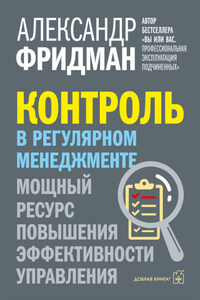Chapter One
Over a “Gasper.”
“To-morrow? To-morrow, my dear Claude! Why, there may not be a to-morrow for you – or for me, when it comes to that – eh?”
“Yes. You’re quite right, old son,” was my cheerful reply. “I’m quite aware that these experiments are confoundedly dangerous – and, besides, there are nasty wind-pockets about just now. I got into a deadly one yesterday afternoon, just across the line at Mill Hill.”
“I saw you,” replied my friend Teddy Ashton, a fellow-aviator and chum at Hendon. “It gave me a nasty moment. You had engine-trouble at the same time.”
“Yes,” I replied. “I was up over eight thousand feet when, without a second’s warning, I found myself in a pocket spinning over. Phew! If ever I nearly came to grief, it was at that moment!”
“I was on the lawn, having tea with Betty, and we were watching you. I quite expected to see you come plumb down,” Teddy said. “You righted your old bus splendidly.”
“She’ll have to have a new dope, I think,” was my reply, endeavouring to turn the conversation into another channel, for I did not care to discuss my narrow escape from death over the mishap which was certainly my own fault.
I was standing with Teddy in one of the long work-sheds of the Barwick Aeroplane Factory at Hendon on that bright morning early in October, 1915. The wind was light, the barometer high, and both of us had been up, as we had been testing our monoplanes.
As he stood leaning against a half-finished machine idly smoking a “gasper” – a cigarette in the airman jargon – he presented a fine picture of the clean-limbed young Englishman in his wind-proof aviation suit, with leather cap and ear-pieces, while his goggles had been pushed upon his brow.
Both of us, “as quirks,” had learned to fly at the same school at Brooklands before the outbreak of war, and both of us were enthusiastic airmen.
In introducing myself to the reader of this chronicle of fact I suppose I ought – at the risk of using the first person singular a little too much – to explain that I, Claude Munro, aged twenty-five, am son of Sir Reginald Munro, a man well-known as a physician, a prominent prescriber of pills and powders in Wimpole Street.
On coming down from Cambridge I had read for the bar a short time, but finding that my inclination was more in the direction of electricity and mechanics, my indulgent father allowed me to take a course of study at a Wireless School, where I was not long in learning most of the recent discoveries in the field of radio-telegraphy.
One Saturday afternoon, about two years before, my father had taken me in his car to Hendon to see the passenger-flights at two guineas a head, and the excellent Verrier had taken me up with him. Immediately I became “bitten” with aviation, and instantly decided to adopt it as a profession.
At first the governor – as all governors do – set his face firmly against such a risky business, but at last I persuaded him to plank down the fees, and thereupon I began a course of tuition in flying, with the result that I now owned my own big monoplane upon which I was conducting certain important experiments, in association with Teddy Ashton.
“See that in the paper this morning about the new German Fokker monoplane?” I asked him as we both smoked and rested, our machines standing side by side outside.
“Of course, my dear old Claude,” was his reply.
“It would be one of the jokes of the war if it wasn’t such a grim jest. Remember what they said recently in Parliament – that we held the supremacy of the air, and that it is maintained.”
“All humbug,” I declared bluntly. “Sad though it is to admit it.”
“Of course it is!” cried Teddy very emphatically.
“The fact is that the public haven’t yet realised that the joke is against our Government ‘experts’ who now see all their science set at nought by a rule-of-the-thumb Dutchman who, by the simple process of putting a big engine into a copy of an obsolete French monoplane, has given his own country’s chief enemy the freedom of the air.”
I agreed with him; and his words, I confess, set me thinking. The papers had been full of the Fokker aeroplane, of its great superiority over anything we possessed, and of it as a real peril to our pilots in Flanders.
“The real fact is,” declared Teddy, in the intervals of a deal of hammering, “that there’s nothing extraordinary about the Fokker except that it is built sensibly for a definite job and does it, while our own ‘experts’ have tangled themselves and the British aircraft industry in a web of pseudo-science and political scheming which has resulted in our lack of the proper machines and engines to fight the Zeppelins.”
“Yes,” I answered with a sigh. “You’re quite right, Teddy. But something must be done. We must find some means by which to fight the enemy’s dirigibles. We have a few good aeroplanes, I admit, but, as you say, those are not the product of the Government factories, but have been produced by private firms. Why? Because airmen have been so badly let down by their experts.”
At that moment a shadow was cast before the door of the shed, and a bright musical feminine voice cried:














